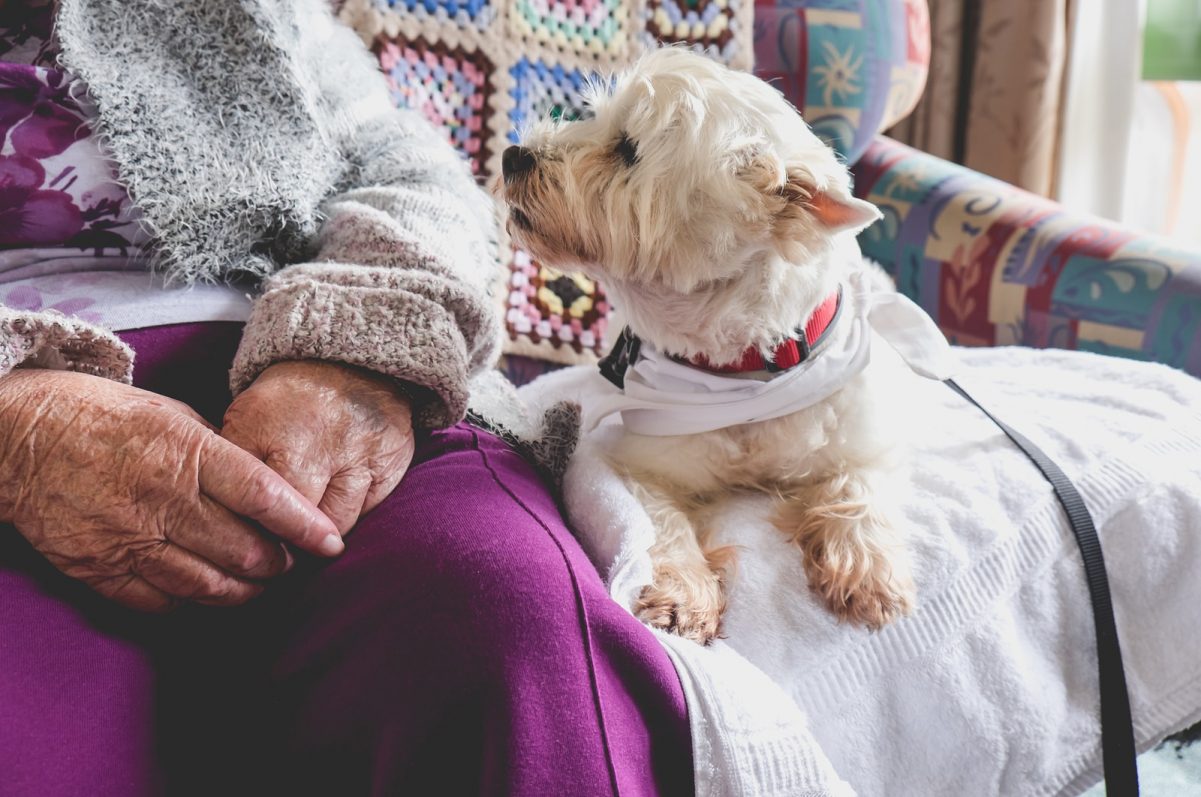Across the country, people enjoy the companionship and individuality of their pets. In many cases, pet owners treat their furry friends as family members, deriving great pleasure from their company. As we age, pets have been shown to provide comfort and to help alleviate loneliness. In fact, as many people seek the assistance of a nursing home or other long-term care facility, that facility’s pet policies are evaluated carefully. Pets can provide value to the elderly in a care facility environment, but is their presence in the facility actually safe? In this guide, we’ll explore the answer to that question, including the role of nursing home insurance in protecting patients, staff, and the facility itself from issues arising due to pets on the premises.
Pet-Friendly Policies in Nursing Homes
Before delving into the benefits and risks associated with pets in the nursing home environment, it can be valuable to understand just how important pets are to those wishing to get care from an assisted living facility. In a recent survey conducted by a leading nursing home directory resource, it was shown that among the top 5 things the elderly want from care facilities, pet-friendly policies were desired. In nursing homes and similar care facilities, residents wish to replicate the comforts of home, and this often includes the companionship of a pet, such as a dog or a cat. In another study, about 90 percent of participating nursing homes had some form of pet policy, allowing certain animals, including the aforementioned dogs and cats as well as small birds, rodents, and aquarium fish. Unfortunately, not all facilities allow pets, voicing concerns about liability issues and health risks. Elderly residents seeking care may often use the facility’s established pet policies as a deciding factor, helping them to determine whether or not they will reside at that facility.
Pets: Benefits and Risks
As with any aspect of the healthcare delivery model, there are benefits and risks associated with pets on nursing home premises. As mentioned earlier, pets provide companionship – a vital aspect that helps to alleviate the feelings of loneliness and disconnection many seniors report when residing in nursing homes. Pet therapy is another clear benefit; in numerous studies, the presence of animals in the nursing home environment spurs engagement among residents, helping them to feel as if they are a part of something larger and improving mental focus. Pets can offer comfort, friendship, and even hope among elderly residents as part of a pet therapy strategy.
The risks associated with pets in nursing homes are few, but despite the low numbers, these risks can be quite substantial, especially when the elderly are concerned. Risks include:
- Disease transmission – Pets can carry and transmit certain diseases, even if those pets are current on their vaccinations. To avoid the spread of potentially harmful or fatal diseases, extreme care must be given during grooming and pet care practices, including the handling and disposal of feces or soiled animal bedding. Rigorous handwashing protocols are a must when pets are present.
- Dangerous bacteria – Not typically associated with mammals like dogs or cats, certain other animals like lizards or turtles may carry deadly bacteria, including salmonella, botulism, and leptospirosis. Handling reptiles or fish may be extremely risky for the immunocompromised. This danger has led many nursing homes to disallow reptiles and even aquarium fish as pets.
- Risks from animal foods and treats – Many pet owners believe in giving raw foods and treats to their pets, such as raw meats and eggs. These raw foods may be contaminated with a wide range of bacteria, viruses, and other pathogens, and as such present a significant risk to elderly patients.
- Slip and fall injuries – If an animal were to escape its enclosure or to leave a patient’s living quarters, the consequences could lead to serious injury from slip and fall incidents.
- Bite injuries – When startled or scared, even the friendliest animal may bite to defend itself. Bite injuries can not only damage delicate tissues but may also be a vector for the spread of disease. For the elderly, this risk can be quite substantial if they are the victim of an animal bite.
Nursing Home Insurance: Providing Protection Against Risks
Nursing homes face many risks as these facilities deliver care to residents. For nursing homes that allow pets as part of their resident policies, additional potential risks can and do exist. Nursing home insurance is vital for all facilities, regardless of risk exposures. This valuable insurance coverage is designed to protect nursing home facilities, staff members, and residents alike in circumstances where injuries occur or legal claims of negligence or neglect are lodged. Nursing home insurance should be considered the cornerstone of risk management. Pet-friendly facilities are popular with today’s seniors; it is imperative for nursing homes to balance the benefits of allowing pets against the potential risks these companion animals present.
About Caitlin Morgan
Caitlin Morgan specializes in insuring assisted living facilities and nursing homes and can assist you in providing insurance and risk management services for this niche market. Give us a call to learn more about our programs at 877.226.1027.


